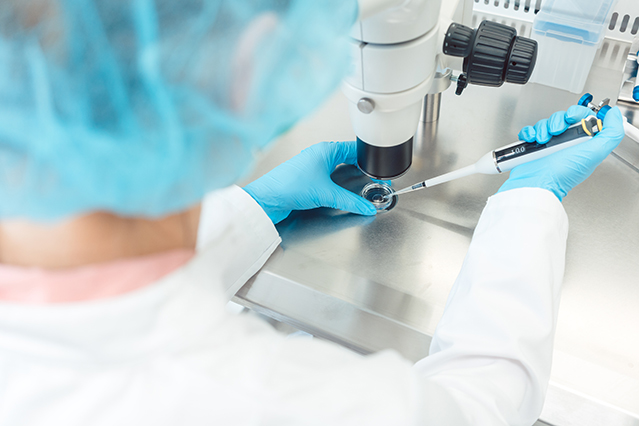PGT-SR, a Third Category of PGT

Important News: COVID-19 Vaccination Update
August 20, 2021
Selecting Fresh Donor Eggs Or Frozen Donor Eggs
September 15, 2021CACRM offers a third category of preimplantation genetic testing: PGT-SR, preimplantation genetic testing for structural chromosomal rearrangements.
Chromosomes are structures within the cell nucleus’ long threads of DNA. Humans contain 23 pairs of chromosomes, which, when combined, equate to our unique genetic code. A gene is a particular part of the double-helix DNA molecules in each cell in the human body. They are arranged in a consecutive sequence on chromosomes and are the functional units of heritable material. In other words, the basic unit through which genetic information is stored and passed between generations. Genes help define who we are as individuals and are what give us completely unique physical and psychological characteristics.
Each person inherits 23 pairs of chromosomes, which equate to 46 total, from each of their parents. Chromosomes are responsible for ensuring DNA is accurately copied and distributed. However, accurate replication does not always occur when embryos are created. In some instances, structural chromosomal rearrangements can happen.
PGT-SR can analyze the following types of structural chromosomal rearrangements:
- Translocations: Segments of the chromosomes that change location
- Inversions: Inverted Chromosomes, flipped, or reversed
- Duplications: Portions of the chromosomes that are duplicated
- Deletions: Portions of the chromosomes that are deleted or missing
Intended parents usually are unaware that they are carriers of certain types of structural chromosomal arrangements until the moment in which they are trying to have a baby, which can usually explain intended parents’ experience of multiple pregnancy losses. SRTs can either be inherited or occur spontaneously (de novo), in approximately one out of 500 people who are carriers. An embryo with a structural chromosomal rearrangement is unfortunately not compatible with life itself.
Therefore, the goal of PGT-SR is to identify the embryos that have the correct amount as well as the normal arrangement of chromosomes in order to transfer a healthy embryo(s) to the uterus during the IVF/embryo transfer cycle.

